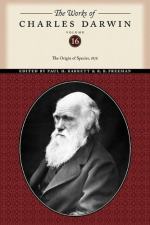The importance, for classification, of trifling characters, mainly depends on their being correlated with several other characters of more or less importance. The value indeed of an aggregate of characters is very evident in natural history. Hence, as has often been remarked, a species may depart from its allies in several characters, both of high physiological importance and of almost universal prevalence, and yet leave us in no doubt where it should be ranked. Hence, also, it has been found, that a classification founded on any single character, however important that may be, has always failed; for no part of the organisation is universally constant. The importance of an aggregate of characters, even when none are important, alone explains, I think, that saying of Linnaeus, that the characters do not give the genus, but the genus gives the characters; for this saying seems founded on an appreciation of many trifling points of resemblance, too slight to be defined. Certain plants, belonging to the Malpighiaceae, bear perfect and degraded flowers; in the latter, as A. de Jussieu has remarked, “the greater number of the characters proper to the species, to the genus, to the family, to the class, disappear, and thus laugh at our classification.” But when Aspicarpa produced in France, during several years, only degraded flowers, departing so wonderfully in a number of the most important points of structure from the proper type of the order, yet M. Richard sagaciously saw, as Jussieu observes, that this genus should still be retained amongst the Malpighiaceae. This case seems to me well to illustrate the spirit with which our classifications are sometimes necessarily founded.
Practically when naturalists are at work, they do not trouble themselves about the physiological value of the characters which they use in defining a group, or in allocating any particular species. If they find a character nearly uniform, and common to a great number of forms, and not common to others, they use it as one of high value; if common to some lesser number, they use it as of subordinate value. This principle has been broadly confessed by some naturalists to be the true one; and by none more clearly than by that excellent botanist, Aug. St. Hilaire. If certain characters are always found correlated with others, though no apparent bond of connexion can be discovered between them, especial value is set on them. As in most groups of animals, important organs, such as those for propelling the blood, or for aerating it, or those for propagating the race, are found nearly uniform, they are considered as highly serviceable in classification; but in some groups of animals all these, the most important vital organs, are found to offer characters of quite subordinate value.




